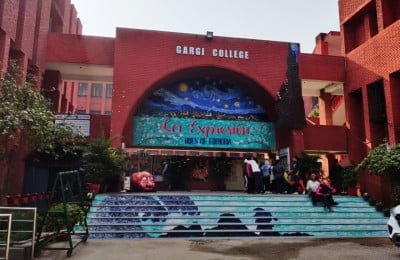The recent inauguration, ‘Pran Pratishtha’ ceremony of Ayodhya’s Ram Mandir on January 22, 2024, saw ‘tradition’ integrate with ‘technology’ as the latest advancements shielded security in the temple.
13,000 forces deployed, anti-terrorism squads, dog squads, and bulletproof vehicles; add to that the integration of artificial intelligence and machine learning. It sounds straight out of a science fiction novel, right? But this is the dystopian reality we’re living in.
The grand inauguration of Ram Mandir saw Ayodhya buzz with religious fervour and anticipation, but the inauguration also shone a spotlight on the ‘modern security measures’ implemented in the process, notably the use of biometric surveillance technology.
Such an integrated, cutting-edge technology was utilised to monitor and track individuals in real-time to bolster security efforts that aided the security operations and guarded the temple.
This surveillance technology enables easy identification of individuals through advanced algorithms that analyse unique physical characteristics such as facial features, fingerprints, or iris patterns, offering authorities an additional layer of security against potential threats.
While many may argue that such measures are necessary to ensure public safety, one can’t help but ponder the potential for abuse and the erosion of individual privacy rights here. Staqu Technologies and their JARVIS platform may claim to offer cutting-edge security solutions, but does it come at a cost to our civil liberties?
What begins as a purported safeguard against terrorism could quickly devolve into a tool of control and consequent oppression. The all-seeing eye of AI knows no bounds, and its unchecked power poses a grave threat to our individual freedom.
The Modi regime has overseen significant advancements, positioning India as a global leader in the digital sphere. However, this is not the first time that the government has taken initiatives in digital governance and technological innovation. While ‘Aapka Aadhar’ has been the front-man of the ruling party’s ‘list of achievements’, reports of Aadhaar data being leaked or misused have raised alarm bells among privacy advocates in the past too, highlighting the need for robust safeguards to protect citizens’ sensitive information.
Very similar to this, the National Digital Health Mission also raised serious concerns about privacy and data security.
Moreover, the approach to data protection has also come under scrutiny for its perceived lack of transparency and accountability. The way data is captured and stored raises serious questions about the government’s commitment to upholding privacy rights.
Against this backdrop, the deployment of biometric surveillance at the Ram Mandir inauguration takes on added significance.
Influential figures ranging from the Ambani family to Alia Bhatt had come to witness history unfold, but a web of surveillance technologies, apparently labelled as necessary measures to ensure safety and security, surrounded the star-studded affair.
In an era marked by evolving security threats, the adoption of such efficient and advanced surveillance tools helped monitor the movements of attendees, identify suspicious individuals, and coordinate response efforts effectively. The ever vigilant and tireless ‘unseen eyes’ of AI scanning the crowd pose inherent risks to individual privacy rights, which can potentially escalate and lead to mass surveillance.
While the government may justify these measures as a necessary evil in the face of modern security challenges, this “slippery slope of mass surveillance” is imperative to be discussed thoughtfully since the measures to ‘ensuring safety’ themselves can also gradually turn into a ‘threat to safety’ because abuse of unlimited power is indeed very likely in the absence of some necessary checks.
Ram Mandir’s majestic inauguration highlights two major observations about “New India”: while on the one hand, it shows an intersection of religion, politics, and governance, on the other hand, it also underscores the complex interplay between security, privacy, and technological innovation in contemporary India.
While it may also symbolise a new dawn for a certain segment of the population in India, it also serves as a stark reminder of the delicate balance between security and privacy. As we march forward into an uncertain future, let us not sacrifice our freedoms at the altar of technological progress. Our rights are not negotiable, and our voices must be heard.
In the absence of clear guidelines and oversight mechanisms, there is a real risk that biometric data collected for security purposes could be misused, whether by government agencies or private entities. For instance, the controversial Personal Data Protection Bill, which falls short of international privacy standards, can be exploited for other purposes. The lack of transparency surrounding data storage and access only serves to exacerbate these concerns, leaving citizens vulnerable to potential misuse of power over personal information.
As we grapple with the implications of biometric surveillance in the context of the Ram Mandir inauguration, it is imperative that we demand greater transparency, accountability, and safeguards to protect our privacy rights. The government must demonstrate a genuine commitment to upholding the principles of privacy and data protection, lest we sacrifice our fundamental rights on the altar of security.
Featured Image Credits: securityworldmarket.com
Kavya Vashisht

















